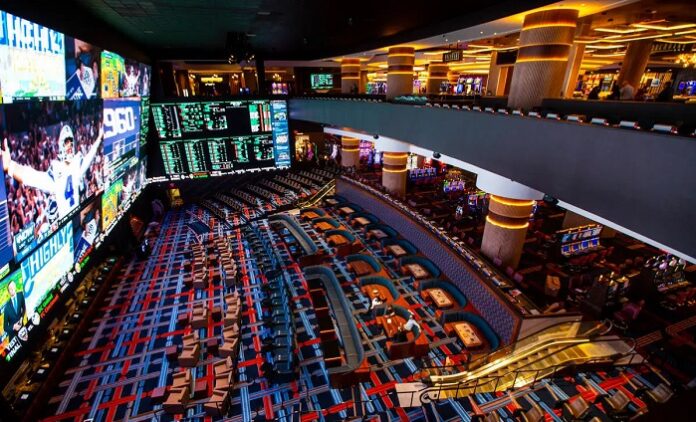The NCAA basketball tournament, aka March Madness, is nirvana for sports bettors. But it’s March Madness on Wall Street too, as the blue-chip S&P 500 index is wagering that legal gambling is a growing trend that’s here to stay.
Casino companies Penn National Gaming, which has a big stake in Dave Portnoy’s Bartsool Sports, and Caesars Entertainment, which is in the process of buying UK-based sports betting giant William Hill, entered the S&P 500 Monday. They join rival S&P 500 members MGM Resorts, Wynn Resorts and Las Vegas Sands (soon to be just Sands).
More than two dozen states (plus Washington, DC) have legalized betting on sports. That is one reason why the casino stocks have hit the jackpot during the past year, despite the fact that the roulette, blackjack and craps tables have been relatively empty.
Traders are betting on a major travel rebound as more states and cities start to reopen — and on continued strong demand from sports fans placing bets on their phones through apps like Barstool Sportsbook & Casino.
NOW at @Casino_Org, US sportsbooks have posted some red numbers on earnings calls, but investors aren’t really looking at those figures. Why are sports betting operators on firm ground with Wall Street?https://t.co/ndS48eaqY7
— Steve Bittenbender (@CasinoOrgSteveB) March 22, 2021
Sports Betting is a ‘Long-Term’ Play
While the proliferation of special purpose acquisition companies fills traditional market watchers with nerves about a bubble, the swift expansion of sports betting across the U.S. may be able to sustain the wave of sports-centric blank checks for years to come, according to investors and participants.
“In terms of business formation and new strategies, we’re still in the early stages of this,” said Robert Heller, president and CEO of Spectrum Gaming Capital, an investment bank specializing in gaming, casinos and sports betting.
“This is an immature business, and immature businesses are times of great opportunity for people to come into the space with disruptive technologies.”
Heller is perhaps the longest-tenured gaming and casino analyst on Wall Street, having followed the segment since 1984.
The sports gambling market is getting increasingly crowded, but there appears to be more than enough demand to support multiple players. Investment research firm Morningstar said in a report last fall that it estimates the amount of legal bets on sports will reach $81 billion by 2024.
On a quarterly call with analysts last month, Churchill Downs Inc. (NASDAQ: CHDN) CEO Bill Carstanjen noted that the company’s sports betting operations operate in the red. Still, the company, which is transitioning those operations over to its TwinSpires brand, sees it as a long play.
“We will continue to invest in this space,” Carstanjen said.
“The real size of the EBITDA opportunity will play out over years and not quarters, and thus we are focused on very carefully developing our business model for the long-term.”
The companies themselves aren’t the only ones who see the big picture down the road. David Sacco, a professor of finance and economics at the University of New Haven, said he likes their prospects.
“I do believe, even though we’re in a highly speculative environment right now, there is an incredibly sound fundamental story to tell about these gaming sites and companies,” Sacco told Casino.org earlier this month. “I do think they’re in for a pretty good growth spurt here in the next few years.”




